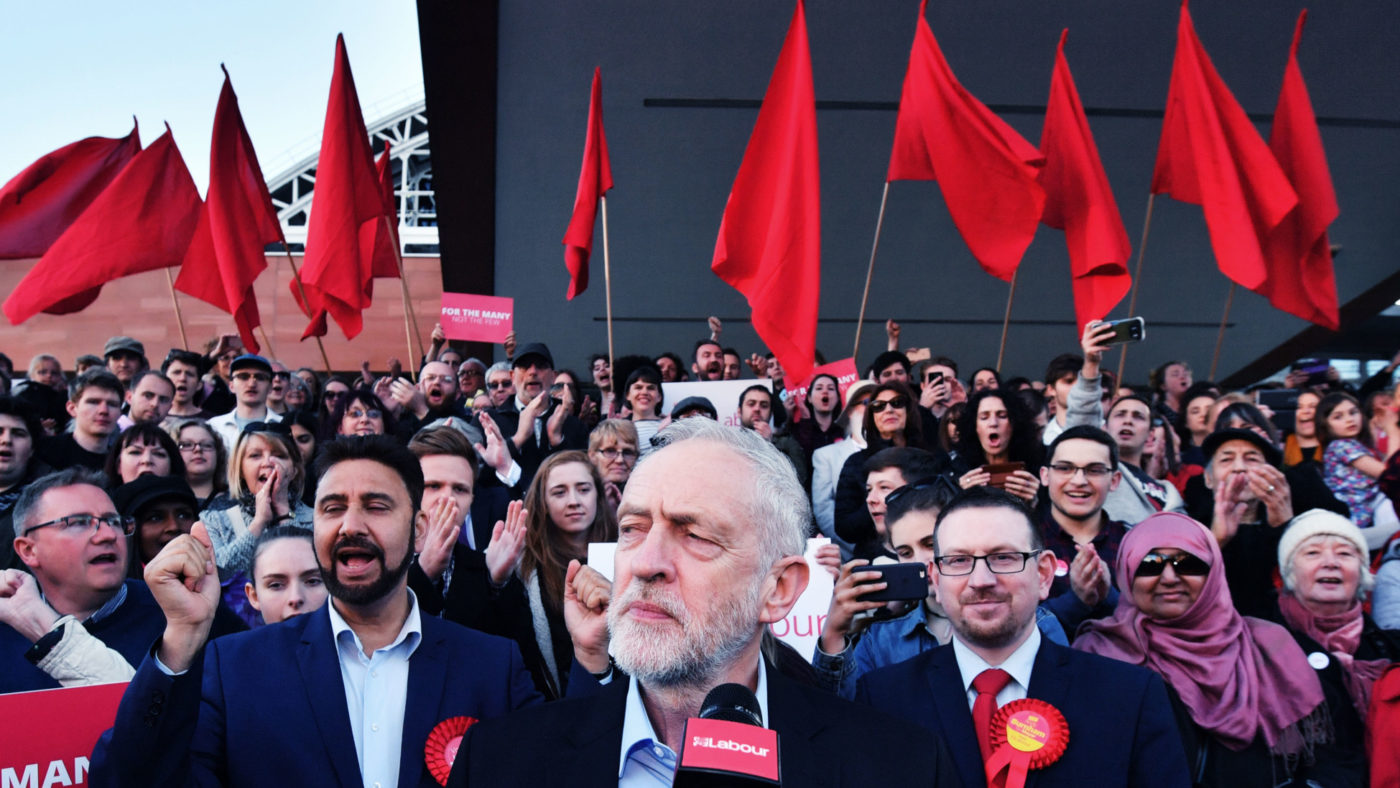On general election night in 1997, Paddy Ashdown memorably described the outgoing prime minister John Major as a decent man at the head of a truly appalling party. The same might be said now of Jeremy Corbyn, apart from the first bit. Since Corbyn became Labour leader in 2015, the party has not only lost its ideological bearings but increasingly exemplified intolerance and intimidation. This is evinced in the treatment of Claire Kober, the Labour leader of Haringey Council. Announcing yesterday her decision to stand down as council leader in May, she said: “The sexism, bullying, undemocratic behaviour, and outright personal attacks on me, as the most senior woman in Labour local government, has left me disappointed and disillusioned.”
The harassment of Ms Kober and her fellow councillors doesn’t come from their political opponents. Or rather it does, but those opponents are nonetheless formally members of the Labour Party. They are grouped in Momentum, the pressure group set up in 2015 to bail Corbyn out of his difficulties with parliamentary colleagues unimpressed by his abilities. Haringey councillors have done their best to operate a progressive and efficient municipal administration. For their pains, they have suffered the intimidation that Ms Kober refers to.
The ostensible cause that Momentum activists have latched on to is a plan by Haringey council to build 6,500 homes over 20 years in a £2 billion deal with Lendlease, a private property developer. The scheme appears to make economic sense, given the profits that the home sales will generate and also the boost to revenue from business rates and council tax. But even if the case were weaker, this is still the type of activity that a municipal authority should be considering and debating, especially in areas like Haringey that have pockets of severe deprivation (like Broadwater Farm) while other parts of the borough have become gentrified. It’s not just a problem in London. Many local authorities are having to think hard about how to repair or replace postwar housing developments that are frankly slums.
The Haringey scheme for urban regeneration using a private-public partnership has met with furious opposition from Momentum activists. Diligent Labour councillors have been deselected or have stood down rather than face bruising challenges from ward parties targeted by Momentum. On all accounts given to my colleagues in The Times’s political coverage, the atmosphere at these meetings is poisonous.
Ms Kober has shown particular dignity in withstanding abuse from people who’ve run nothing and whose commitment to Labour values is remote. With scandalous highhandedness, Labour’s ruling National Executive Committee intervened last week on behalf of the minority of Labour councillors who oppose the scheme, and urged the council to halt the scheme till after May’s elections (when, so it’s assumed, Momentum will have deposed many of Ms Kober’s colleagues). The idea that people who don’t live in the borough get to dictate its housing policy is an affront to the very notion of local democracy and decentralised decision making.
This tawdry affair is a matter of national political significance because of what it tells us about the state of Labour. The language and attitudes of Momentum do not comport with progressive politics. The sexism of Corbyn’s circle could scarcely be more explicit. It’s less than two years since Jo Cox’s murder, yet last week John McDonnell, the shadow chancellor, refused to apologise for his infamous “joke” about lynching Esther McVey, the work and pensions secretary. One hardy and atavistic prejudice, against Jews, is far more prevalent in the ranks of Corbyn’s supporters than in British society more widely. Both misogyny and antisemitism have been unleashed by Corbyn’s supporters in Haringey. Last July, Momentum activists shouted down Haringey councillors who voted for a motion to adopt the International Holocaust Remembrance Alliance’s definition of antisemitism, which has been widely adopted in the public sector.
Where Labour has now got itself is fantastical, and I observe it with dismay. Let me be personal. On any rational assessment, I hold left-of-centre views on redistribution, health policy, comprehensive education, sexual equality, gay rights and much else. I voted Labour even in the days of Michael Foot and Neil Kinnock, who were unsuitable leaders but were committed to the party’s values. At last year’s general election, I publicly backed Meg Hillier, my local Labour MP in east London. On the touchstone issues of today, Brexit and immigration, I oppose Tory policies whereas Corbyn votes for them. On housing, I’m far to the left of Labour. For years I’ve worked with the Chartered Institute of Housing, speaking at its conferences and co-authoring a report, to urge a rational housing policy that better serves the economy and public welfare. I’ve long argued for sweeping away tax privileges for owner-occupation, imposing capital gains tax on the sale of primary residences, and boosting social housing.
Yet I have to acknowledge that under Corbyn, and despite the efforts of good MPs and municipal leaders who I know and respect, Labour has become a reactionary force in which thuggishness is tolerated and conscientious public servants are routinely abused. Corbyn may himself be a figure of scant imagination but he cannot fail to see what his supporters have created. I wish it were otherwise but Labour as it stands is a menace to the public good.


